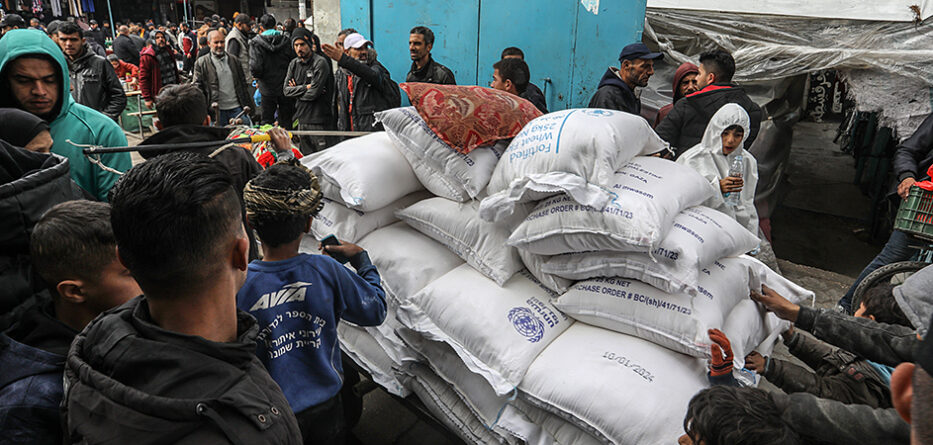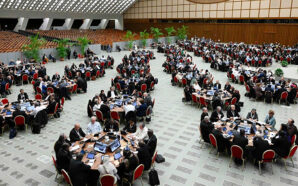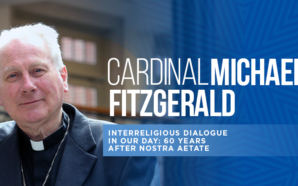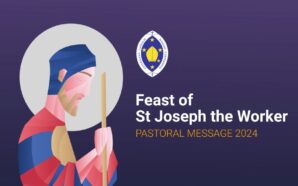Homily for the Second Sunday of Easter, Year B
Readings: Acts 4:32-35; Psalm 117(118):2-4, 15-18, 22-24; 1 John 5:1-6; John 20:19-31
7 April 2024
On Easter Tuesday, we all gasped when we heard that the ultimate humanitarian good deed, delivering food under a neutral banner to starving isolated people in Gaza, resulted in the death of seven volunteers, one of whom was an Australian national, named Zomi Frankcom. Having just unloaded tons of food relief, they were in three cars brandishing NGO logos travelling more than 2 kilometres apart.
LISTEN: https://soundcloud.com/frank-brennan-6/homily-7424
Zomi and her six colleagues from World Central Kitchen had followed all the protocols. But their well-marked three car convoy was taken out by a multiple drone attack conducted by the Israeli Defence Force. Some unnamed military personnel had made a series of dreadful mistakes.
Zomi had worked for World Central Kitchen these past five years. Her family said: “She put her own misgivings and fears to one side in order to help others, fiercely following the belief that there were people in Gaza who desperately needed help, and it was her calling.”[1]
Reverend Tim Costello who has travelled to many war scenes in his advocacy for World Vision said: “We have seen in the past the equivocation from our leaders to assert a simple proposition: namely that an innocent Palestinian life is equal to an innocent Jewish life. That is what my faith teaches me and what universal human rights means.”[2] He went on even handedly to express concern about both sides in this intractable conflict: “[I]n the binary rush of Netanyahu and Hamas to claim victimhood to win political support we ignore that humans can simultaneously be both victims and perpetrators. Both Netanyahu and Hamas oppose a two-state solution and both need and feed off each other.”
At Easter, we give thanks for those like Zomi who dedicate their lives to others, putting their lives on the line, seeking humanitarian relief for the most innocent and the most vulnerable in the most dreadful of circumstances. Her death and the deaths of her fellow aid workers highlight the evil of the deaths of thousands of innocent non-combatants who have died in this conflict at the hands of those on both sides.
This conflagration has been a long time coming, and the establishment of the conditions for long term peace will be a long time coming. Meanwhile we need young, able people like Zomi to bring short term humanitarian relief. Her dedication, her smile, her joy, and her hope speak to us of the significance of Easter for us Christians.
We are told in today’s gospel that after Jesus’ death, “the doors were closed in the room where the disciples were, for fear of the Jews”. John speaks of ‘the Jews’ 70 times in his gospel. On 30 of those occasions, ‘the Jews’ are identified as those hostile to Jesus or his followers. There can be no doubt that John’s gospel has contributed to anti-Semitism across the centuries. Given the present war in Gaza, it is important to address that. Scripture scholar Frank Moloney reminds us that ‘almost everyone’ in John’s gospel, including “the heroes, the crowds and the villains, are Jews. They all come from the Jewish world of the time of Jesus and the earliest church, and are not to be directly linked to our Jewish neighbours today.”[3] For John, those identified as ‘the Jews’ in the latter part of the gospel are those who excluded their fellow Jews who became followers of Jesus. They excluded their fellow Jews both from the synagogue, and from day to day Jewish life and practices. The disciples are hiding away from their fellow Jews who never confessed Jesus as the Christ. No doubt, those locked inside the room were wondering if they had got it all wrong – leaving the synagogue and following Jesus as ‘the King of the Jews’. And those outside the room would have been castigating them: ‘We told you so.’
In the midst of conflict, the Risen Jesus appears and greets those locked in the room: ‘Peace be with you.’ After he had washed their feet at the Last Supper, Jesus had said to them: “Peace I bequeath to you, my own peace I give you, a peace which the world cannot give, this is my gift to you. Do not let your hearts be troubled or afraid” (14:27). At his first appearance to the disciples after his resurrection, Jesus wishes them peace. When Jesus comes again eight days later he once again comes through the closed doors with the now familiar greeting: ‘Peace be with you.’
Thomas wanted tangible proof of the Risen Jesus. He wanted to touch the wounds of crucifixion. In John’s gospel, the first one to believe is ‘the other disciple’ who went with Peter to the tomb. On entering, the other disciple saw the empty tomb and the burial cloths. He did not see any risen body. But, there and then, ‘He saw and he believed’. Mary of Magdala and the disciples including Thomas later got to see the risen body. But John’s real message is for readers like us. We are like ‘the other disciple’. Jesus says to Thomas: “You believe because you can see me. Happy are those who have not seen and yet believe.”
We believe that the Lord is risen. We believe in a peace that the world cannot give. We believe that our sins and the sins of others can be forgiven.
Reflecting on the situation in Gaza, Tim Costello said, “We find it so unbearable and feel so impotent that we look away. Zomi and her colleagues did not look away. They were not impotent nor paralysed. They put their lives on the line as have more than 200 other aid workers who the UN reports have died in this war so far in Gaza.” Caritas Australia reports: “Between 1st and 29th March, the UN also reports close to 70 aid missions being impeded, denied, postponed, or withdrawn. Since October 7th, 348 health workers have also been killed and 155 health facilities damaged, with 13,000 children among the 32,623 fatalities.”[4]
We pray earnestly this Easter for the peace the world cannot give. We pray that the door of peace and understanding might be opened. We pray that fear will be driven out. We pray that Zomi and her companions have not died in vain. We pray that we will not look away. We pray that we might believe even when we have not seen.
From the start of 2024, Fr Frank Brennan SJ will serve as part of a Jesuit team of priests working within a new configuration of the Toowong, St Lucia and Indooroopilly parishes in the Archdiocese of Brisbane. Frank Brennan SJ is a former CEO of Catholic Social Services Australia (CSSA). Fr Frank’s latest book is An Indigenous Voice to Parliament: Considering a Constitutional Bridge, Garratt Publishing, 2023.
[1] See https://www.smh.com.au/politics/federal/zomi-would-be-heartbroken-if-her-death-prevented-aid-from-being-given-to-those-in-need-20240403-p5fh56.html
[2] See https://www.theguardian.com/commentisfree/2024/apr/03/zomi-and-her-colleagues-were-saving-lives-their-deaths-deserve-our-outrage
[3] Francis Moloney, ‘John’ in The Paulist Biblical Commentary, Paulist Press, 2018, p.1109.
[4] See https://www.caritas.org.au/news/media-releases/caritas-australia-joins-humanitarian-agencies-in-condemning-aid-worker-deaths/








